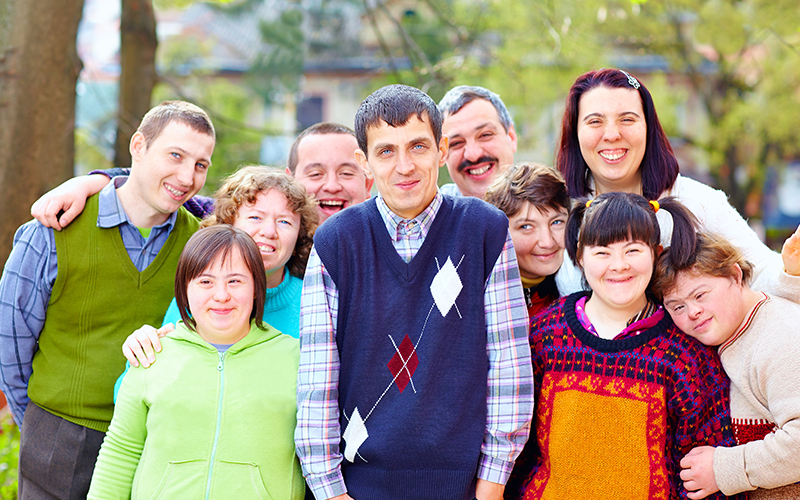
“An intellectual or developmental disability, also called IDD, includes many severe, chronic conditions that are due to mental and/or physical impairments. IDD can begin at any time, up to 22 years of age. It usually lasts throughout a person’s lifetime. People who have IDD have problems with major life activities such as:
- Language
- Mobility
- Learning
- Self-help
- Independent living” [1]

Developmental Disability
“Developmental Disability (DD) is a severe mental or physical impairment or combination of mental and physical impairments.
- Begins before an individual is 22 years of age or 18 years of age for an intellectual disability;
- Begins in and directly affects the brain and has continued, or is expected to continue, indefinitely;
- Causes significant impairment of daily living skills (adaptive behavior) such as, but not limited to, communicating, grooming, dressing, safety and social skills.
- Other developmental disabilities include autism, cerebral palsy, epilepsy, or other neurological disabling conditions.
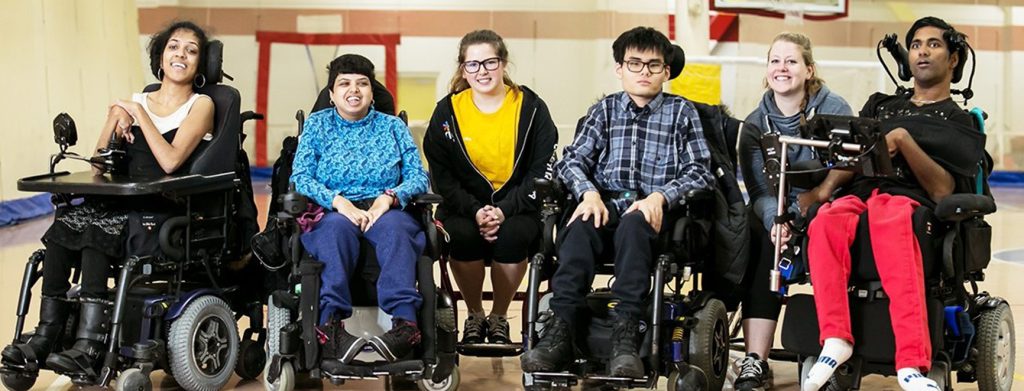
Intellectual Disability
Intellectual Disability (ID) means significantly sub-average intellectual functioning with an intelligence quotient (IQ) of 70 and under as measured by a qualified professional, along with a lack of daily living skills (adaptive behavior) such as, but not limited to, communicating, grooming, dressing, safety and social skills, that show up prior to 18 years of age.
Individuals with IQs of 71-75 may be considered to have an intellectual disability if there is also significant impairment in adaptive behavior as diagnosed by a licensed clinical or school psychologist.” [2]
“The common types of intellectual disabilities include autism, Down syndrome, fragile x syndrome, fetal alcohol syndrome, and Prader-Willi syndrome. ”[3]
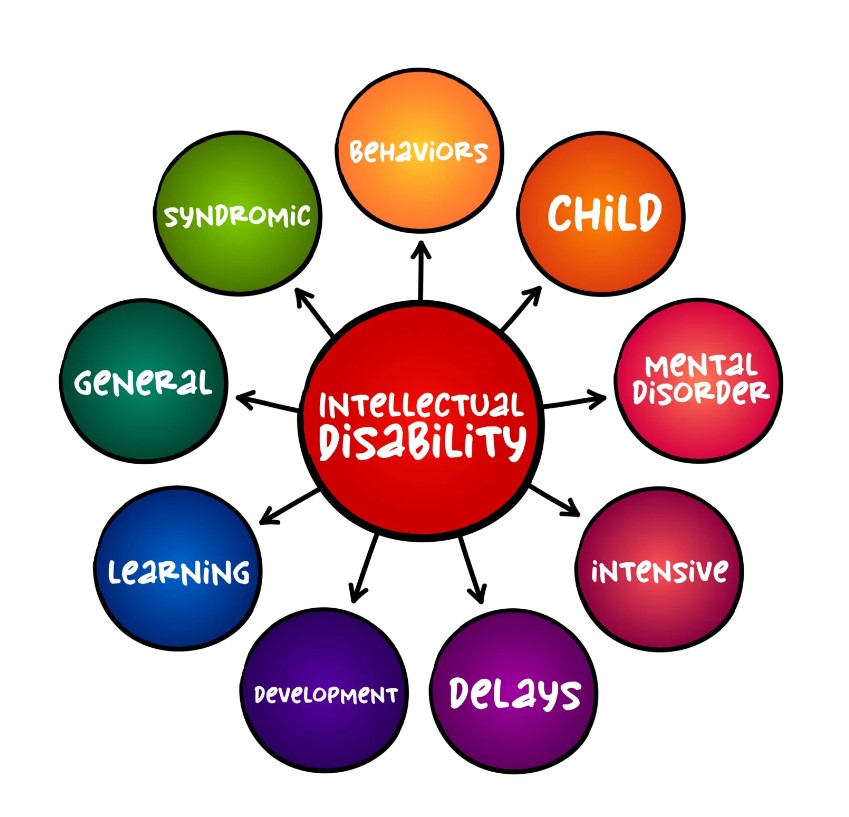
Where can you get support to adults with IDD?
“The Office of Developmental Disability Services (ODDS) offers services to adults ranging from supports to assist an individual to live in their own home or with family or friends, to 24-hour comprehensive services. Services offered have specific eligibility standards and are accessed through the local Community Developmental Disabilities Program (CDDP).
An Individual Support Plan is established with each adult to identify supports provided based upon their health and safety needs, interests, choices and goals. Each plan uses a person-centered planning process. It’s also important to understand and learn more about supported decision-making as a part of this process and how it allows a person with a disability to make choices about their life.” [4]
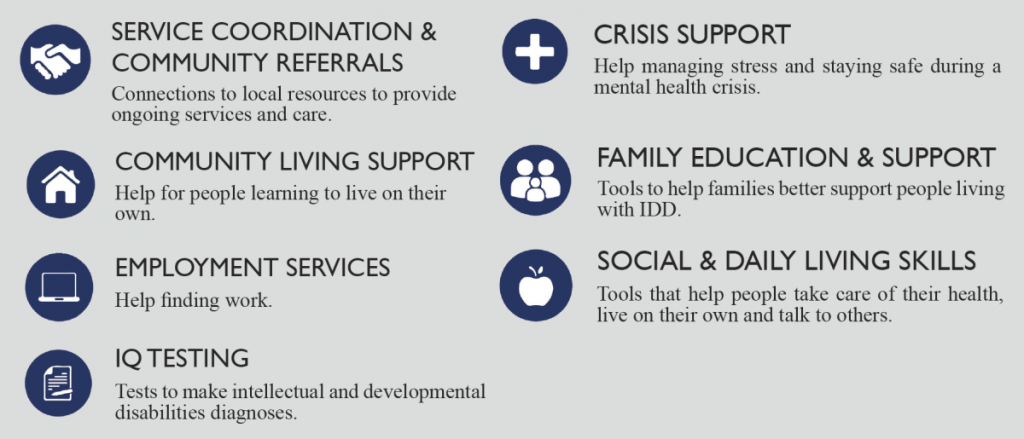
Access our services
To find out if you or a family member may qualify for supports through Horizon Project, start by contacting the Umatilla County Community Developmental Disabilities Program (CDDP). The assessment and intake process starts: https://www.co.umatilla.or.us/departments/dd
More resources for families and individuals are available from the Oregon Department of Disabilities Services at www.oregon.gov/dhs/seniors-disabilities/DD/Pages/
If you have any question contact us:
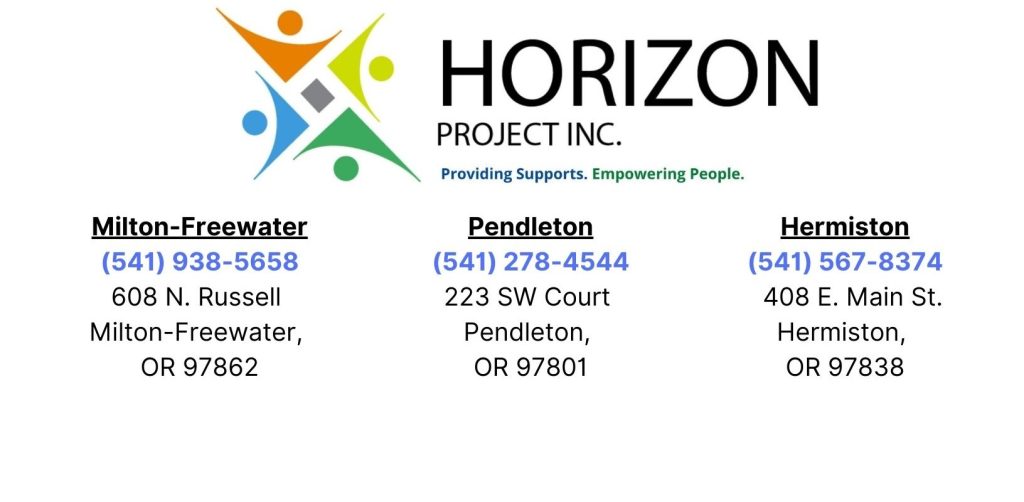
Resources:
[2] https://www.oregon.gov/dhs/seniors-disabilities/dd/pages/definitions.aspx
[3] https://www.enableme.ke/en/article/5-most-common-types-of-intellectual-disabilities
[4] https://www.oregon.gov/dhs/SENIORS-DISABILITIES/DD/Pages/adult-supports
